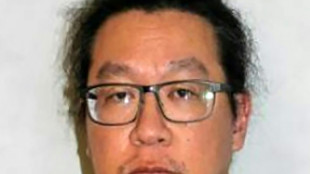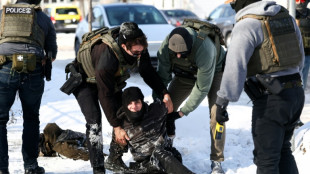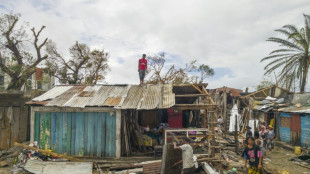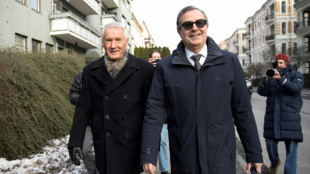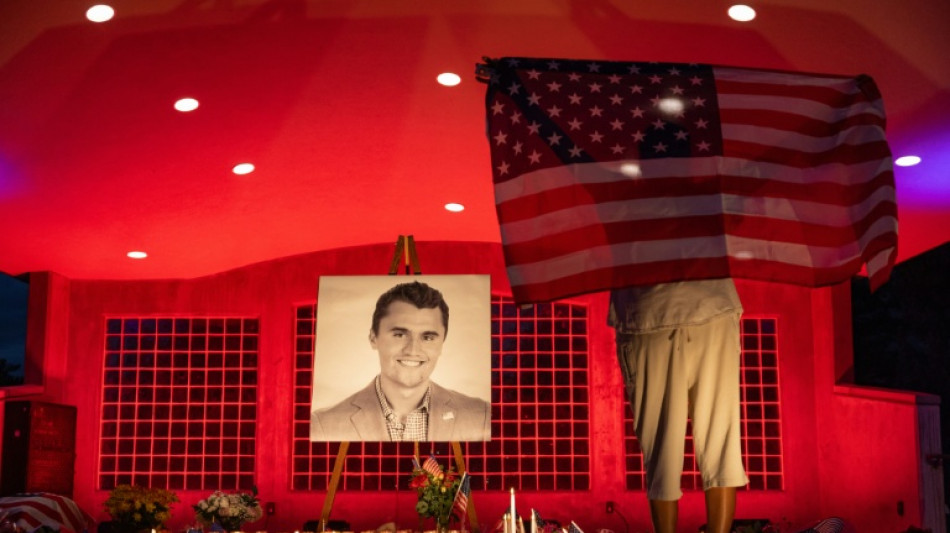
Charlie Kirk's killing: what we know

Charlie Kirk, a right-wing activist and close ally of President Donald Trump, was fatally shot during an event in the western US state of Utah. Authorities had failed to locate the gunman on Thursday, more than 30 hours later.
Here is what we know and some of the main unanswered questions.
-- The shooting --
Kirk, head of the country's largest conservative youth movement, which he co-founded in 2012 at the age of 18, was speaking around noon on the campus of Utah Valley University.
Dressed in a white t-shirt with the word "Freedom" across the front, Kirk sat in a chair under a tent as he answered questions from the large audience.
Former Utah congressman Jason Chaffetz, who was at the event, told Fox News that Kirk was responding to a question about "transgender shooters, mass shooters, and in the midst of that, the shot rang out."
The 31-year-old collapsed with a neck wound, according to a video clip shot from a nearby location. He was announced dead soon after by Trump.
-- The shooter --
Authorities said the killer used a high-powered, bolt-action rifle, firing from the roof of a building some 200 yards (185 meters) away from his target. They said the killer was lying prone, a position that increases accuracy.
Pictures and video taken from security cameras and released by the FBI showed a young man. He was wearing a baseball cap and dark clothing, including a top with a design featuring an American flag and what appeared to be an eagle.
Officials said Thursday that the shooter was wearing Converse-style tennis shoes with a white sole.
They found palm prints from where he climbed down from the building to begin his getaway. They also found his rifle -- a Mauser 30-06 caliber -- discarded in an area of trees near a carpark.
The FBI has also offered a reward of up to $100,000 for information leading to the suspect's capture.
However, as the manhunt stretched on, the FBI and other law enforcement bodies appeared to be making slow progress in tracking him down.
-- The motive --
The forensic evidence from the scene, which was being analyzed by crime labs in several locations, according to authorities, is all that's been made public.
No official suggestion has been made about the motive.
In a briefing late Thursday, Utah Governor Spencer Cox warned that social media was filling with "a tremendous amount of disinformation." He said "our adversaries want violence" and cited China in particular as using bots to spread discord online.
Kirk was a star on the Republican right and a particularly close ally of Trump, helping him to make surging gains in the youth vote when he won election last November.
However, Kirk espoused multiple far-right views, making him hugely controversial for Democrats. He also fell out at times with fellow members of the Republican right -- some of them, such as white nationalist leader Nick Fuentes, saying he was not hard-right enough.
-- The political reaction --
Politicians on all sides quickly came out to condemn the killing, many of them calling on Americans to heal growing divisions.
Trump's first reaction on Wednesday was to blame "the radical left." He toned his rhetoric down on Thursday and said that Kirk had been "an advocate of nonviolence."
"That's the way I'd like to see people respond," he said.
Kirk is being treated as a national hero by the Trump administration.
Trump announced Thursday he would posthumously decorate Kirk with America's highest civilian honor, the Medal of Freedom.
The Republican president also told reporters that he would attend Kirk's funeral.
"I have an obligation to do that," Trump said. "Whenever it is, I'm going."
Kirk's coffin was transported to his home city of Phoenix on Vice President JD Vance's official plane.
Footage showed the vice president with his hands on the casket as it was carried to Air Force Two.
X.Gaboury--SMC


 London
London

 Manchester
Manchester
 Glasgow
Glasgow
 Dublin
Dublin
 Belfast
Belfast
 Washington
Washington
 Denver
Denver
 Atlanta
Atlanta
 Dallas
Dallas
 Houston Texas
Houston Texas
 New Orleans
New Orleans
 El Paso
El Paso
 Phoenix
Phoenix
 Los Angeles
Los Angeles
